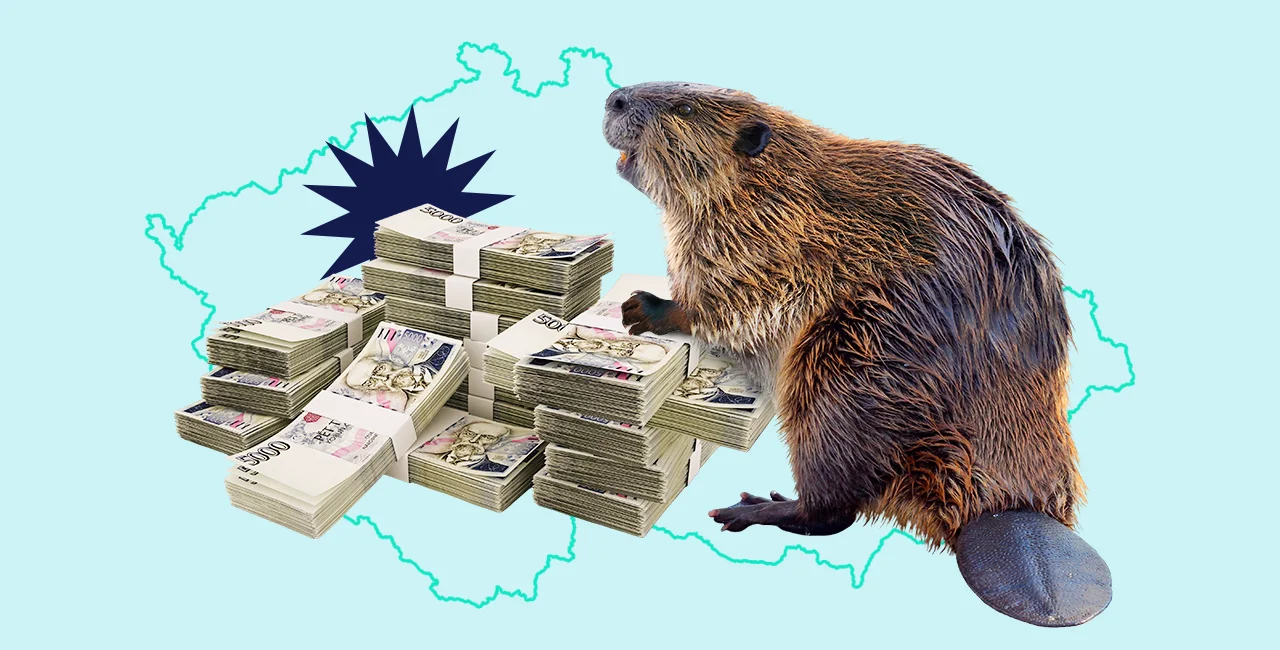A family of beavers has unexpectedly saved Czech taxpayers approximately CZK 30 million by constructing their own dam in a former military training area, eliminating the need for a stalled government project that had been in planning since 2018. The story has attracted international attention with major media outlets like The New York Times and The Guardian picking out the whiskered wetland rodents.
Authorities initially intended to build a dam to protect the Klabava River in Central Bohemia, south of Prague, from sediment and acidic water spilling from two nearby ponds. The proposed barrier would have also created a new wetland ecosystem. However, the project was delayed for years due to bureaucratic hurdles and land disputes—until the beavers intervened, completing the work themselves.
PARTNER ARTICLE
“The beavers built a wetland with pools and canals, covering twice the planned area,” British media outlet The Guardian quotes Bohumil Fišer of the Czech Nature Conservation Agency as saying. Not only did they establish a natural flood zone, but they also expanded their engineering efforts to a gully conservationists had hoped to modify. So far, they have built at least four dams, with more under construction.
Bohumil Fišer, Czech Nature Conservation Agency“The beavers completed in months what we had spent years planning, and they did it for free."
Officials say beavers built the dams by piling stones across a river or stream, packing them with mud and repeating the process to create a pond, which expands into a wetland.
Beavers are renowned for their ability to transform landscapes, creating these wetlands that support biodiversity and enhance water management. Their dams prevent flooding, improve water quality, and provide habitats for various species, including critically endangered crayfish in the Klabava River.
The Czech Republic is celebrating its beavers’ role in helping to divert water over riverbanks and creating a thriving wetland ecosystem.
— TVP World (@TVPWorld_com) February 11, 2025
Wetlands are crucial to many ecosystems as they often improve water retention, form breeding grounds for amphibians, and naturally filter… pic.twitter.com/mvZ27jEneh
The newly formed wetland is already attracting wildlife, and there is little risk of conflict with farmers, as the area has been designated for conservation since 2016.
While beavers are often blamed for damaging trees and flooding farmland, their impact in this case is purely beneficial. Similar successes have been observed in other parts of Europe, including England, where beaver rewilding projects have demonstrated measurable ecological benefits.
The animals are skilled swimmers and can weigh up to 80 pounds, though are easy prey for bears, wolves, and mountain lions on land. As Czechia and the area in question has very limited amounts of such wildlife, the rodents will be safe to continue their helpful deeds at Klabava and beyond.












 Reading time: 2 minutes
Reading time: 2 minutes 



























